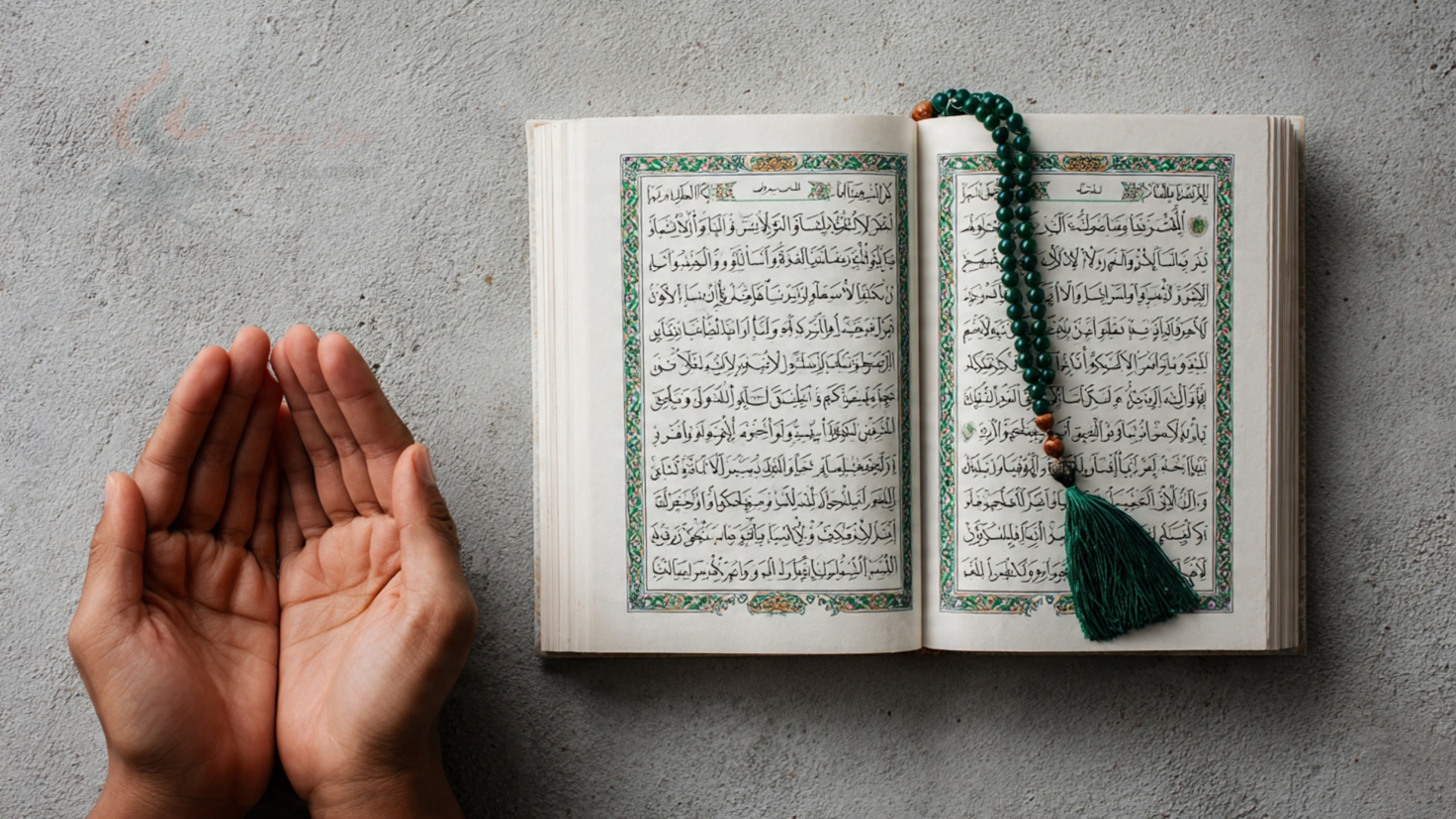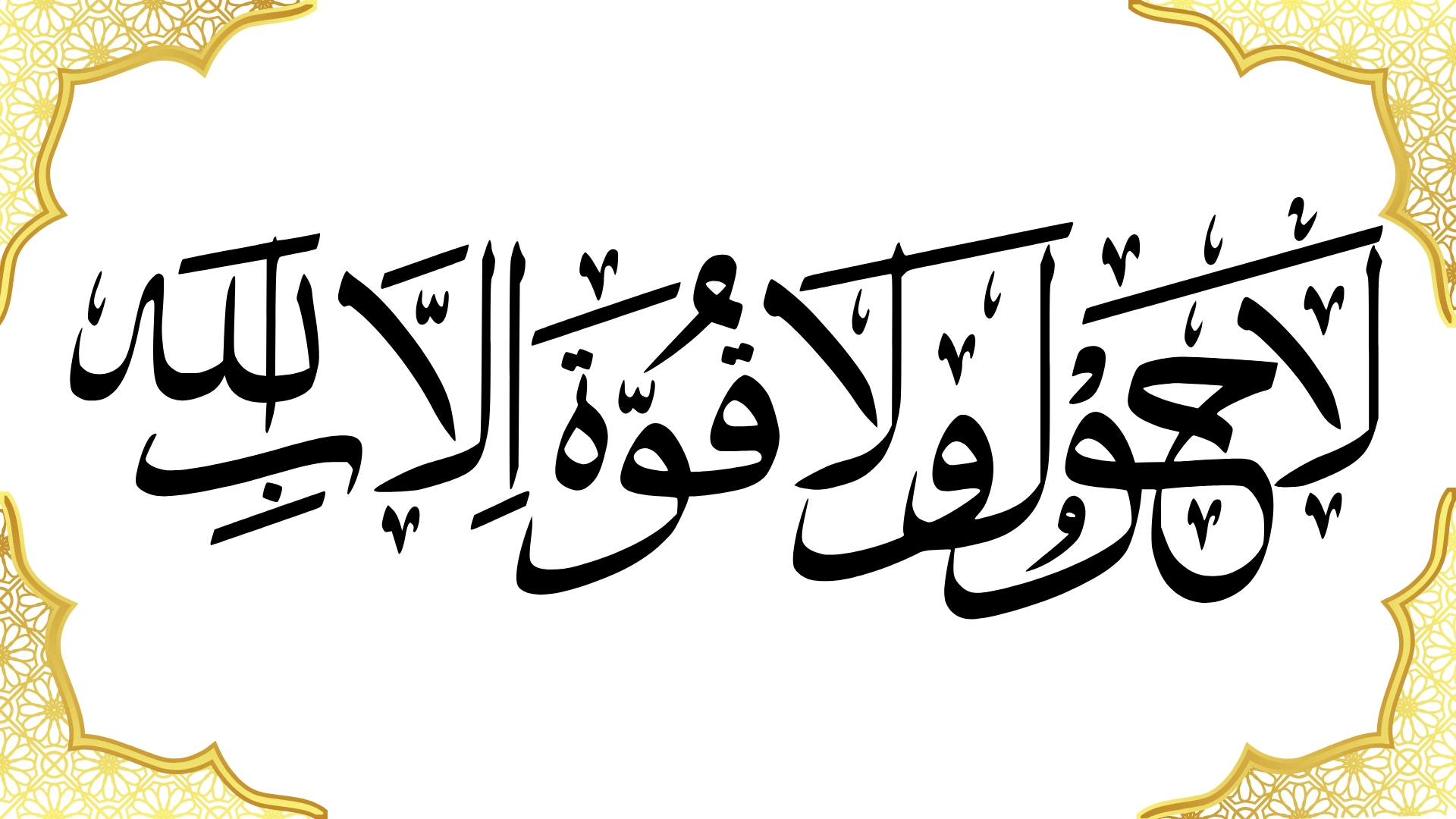Surah Al-Alaq Transliteration and Its Significance: The Islamic community significantly values Surah Al-Alaq because it carries the name “The Clot.” The Quran contains the 96th chapter with nineteen verses within its composition. In the meditation spot known as Hira Cave, Prophet Muhammad (peace be upon him) received his first divine message from God through this exceptional chapter. This discussion examines how the background story and essential messages connect Surah Al-Alaq to contemporary relevance.
| Chapter Name | Surah Al-Alaq (“The Clot”) |
| Chapter Number | 96 |
| Number of Verses | 19 |
| Revelation Location | Hira Cave |
| Significance | First divine revelation received by Prophet Muhammad (peace be upon him) |
| Key Themes | – Importance of knowledge and learning |
| – Recognition of God as the Creator | |
| – Human humility and accountability | |
| Contemporary Relevance | – Encourages pursuit of education and intellectual growth |
| – Promotes self-awareness and humility in personal and societal contexts | |
| – Highlights the importance of connecting with spirituality and divine guidance |
Historical Context of Surah Al-Alaq
During his time as a non-prophet, the Prophet Muhammad (peace be upon him) spent many moments in the Cave of Hira contemplating the universe and its divine Creator. At 40 years old, when he was taking a reflective pause, the Angel Jibreel (Gabriel) descended before him. The angel ordered Muhammad to “Read” after commanding him with the same order twice. Surprised by the command, the Prophet declared his inability to read. The angel embraced the Prophet Muhammad, then recited Surah Al-Alaq starting from its first verses.
The sacred verses introduced divine guidance when Prophet Muhammad (peace be upon him) received them for the first time. At this moment revealed by God the divine message initiated Islam to teach humans about knowledge and how God communicates with humanity.
Spiritual Impact of Surah Al-Alaq
The practice of reciting and thinking about Surah Al-Alaq strengthens Muslim devotion to Allah. The recitation of Surah Al-Alaq helps Muslim believers grow their understanding about human existence and depicts Allah’s limitless wisdom. Prophetic verses in the text remind believers that devotion alongside knowledge acts as worship, which leads them toward their divine Creator.
Key Lessons from Surah Al-Alaq Transliteration
- Islam values education with deep importance through the emphasis placed on reading and writing activities in this Surah.
- The creation narrative of a single clot inspires us to practice humility in a state of gratefulness toward Allah.
- By realizing Allah continuously watches all human actions, people develop ethical conduct and responsibility in their behavior.
- The Surah presents prayer as an extraordinary spiritual tool that helps believers reach proximity with God and maintain calmness during difficulties.
Relevance of Surah Al-Alaq in Modern Times
The principal messages of Surah Al-Alaq remain relevant throughout all times. There has never been a time when the command to seek knowledge that benefits us finds such prominence, because information now rules our existence. Muslims use humility as a defense against the pride that emerges from technological and material advancements. The Surah establishes a defense of worship to promote spiritual connection, which helps Muslims commit to their faith among the challenges of rapid modern life.
Surah Al-Alaq Transliteration, Translations, and Tafseer
Among all chapters in the Quran, Surah Al-Alaq serves as a foundational chapter because of its nickname “The Clot.” The 96th Surah of the Holy Quran appears as the first revelation to Prophet Muhammad (peace be upon him) that occurred in Hira Cave. The nineteen verses of this Surah concentrate on instructing believers about acknowledging Allah and learning to remain humble before Him. The following document contains both the original Arabic manuscript together with transliterated text alongside Urdu and English translations and an extensive verse annotation.

بِسۡمِ ٱللَّهِ ٱلرَّحۡمَٰنِ ٱلرَّحِيمِ
Bismillaahir Rahmaanir Raheem
ترجمہ: شروع اﷲ کے نام سے جو بڑا مہربان نہایت رحم والا (ہے)
In the name of Allah, the Entirely Merciful, the Especially Merciful.
Verse 1
Arabic Text:
ٱقۡرَأۡ بِٱسۡمِ رَبِّكَ ٱلَّذِي خَلَقَ
Transliteration:
Iqra bismi rab bikal lazee khalaq
Urdu Translation:
اپنے رب کے نام سے پڑھیے جس نے پیدا کیا۔
English Translation:
Recite in the name of your Lord who created.
Tafseer:
Allah commands the Prophet (peace be upon him) to read, marking the beginning of divine revelations. The emphasis on the Lord being the Creator connects faith with the pursuit of knowledge. Every action starts with acknowledging Allah’s greatness and blessings.
Verse 2
Arabic Text:
خَلَقَ ٱلۡإِنسَٰنَ مِنۡ عَلَقٍ
Transliteration:
Khalaqal insaana min ‘alaq
Urdu Translation:
جس نے انسان کو ایک چمٹنے والے لوتھڑے سے پیدا کیا۔
English Translation:
Created man from a clinging substance.
Tafseer:
This verse highlights the humble beginnings of humanity, created from a clingy clot of blood. This is a reminder of Allah’s power to create complex beings from the simplest of origins and an invitation for humans to recognize their dependence on Allah.
Verse 3
Arabic Text:
ٱقۡرَأۡ وَرَبُّكَ ٱلۡأَكۡرَمُ
Transliteration:
Iqra wa rabbukal akram
Urdu Translation:
پڑھیے، اور آپ کا رب سب سے زیادہ عزت والا ہے۔
English Translation:
Recite, and your Lord is the Most Generous.
Tafseer:
The repetition of “recite” emphasizes the importance of reading and learning. Allah is described as the Most Generous, implying that He generously provides knowledge, wisdom, and guidance to His creation.
Verse 4
Arabic Text:
ٱلَّذِي عَلَّمَ بِٱلۡقَلَمِ
Transliteration:
Allathee ‘allama bil qalam
Urdu Translation:
جس نے قلم کے ذریعے علم سکھایا۔
English Translation:
Who was taught by the pen?
Tafseer:
This verse emphasizes the role of writing and recording as tools for spreading and preserving knowledge. The pen symbolizes the foundation of learning, development, and human progress. It highlights the blessing of communication through writing.
Verse 5
Arabic Text:
عَلَّمَ ٱلۡإِنسَٰنَ مَا لَمۡ يَعۡلَمۡ
Transliteration:
‘Allamal insaana maa lam ya’lam
Urdu Translation:
انسان کو وہ سب سکھایا جو وہ نہیں جانتا تھا۔
English Translation:
Taught man what he did not know.
Tafseer:
This verse reflects humanity’s endless capacity to learn and discover new things through Allah’s grace. Everything that humans know and can explore originates from Allah’s mercy and guidance.
Verse 6
Arabic Text:
كَلَّآ إِنَّ ٱلۡإِنسَٰنَ لَيَطۡغَىٰٓ
Transliteration:
Kalla innal-insana layat-ghaa
Urdu Translation:
ہرگز نہیں، یقیناً انسان حد سے بڑھ جاتا ہے۔
English Translation:
No! Indeed, man transgresses.
Tafseer:
Humans, when left unchecked, often become arrogant and exceed their limits. This verse highlights the ungrateful nature of humans who rebel against Allah despite being showered with His blessings.
Verse 7
Arabic Text:
أَن رَّءَاهُ ٱسۡتَغۡنَىٰٓ
Transliteration:
An ra-aahu istaghnaa
Urdu Translation:
جب وہ اپنے آپ کو بےنیاز سمجھتا ہے۔
English Translation:
Because he sees himself as self-sufficient.
Tafseer:
The verse attributes human arrogance to the false belief of self-sufficiency. Many feel they no longer need Allah’s guidance when they gain wealth, power, or success, forgetting their ultimate dependence on Him.
Verse 8
Arabic Text:
إِنَّ إِلَىٰ رَبِّكَ ٱلرُّجۡعَىٰٓ
Transliteration:
Inna ila rabbika ar rujaa
Urdu Translation:
یقیناً آپ کے رب ہی کی طرف لوٹ کر جانا ہے۔
English Translation:
Surely, to your Lord is the return.
Tafseer:
This verse reminds humanity that everyone must return to Allah. It is a call to accountability and humility, knowing that all actions will be judged.
Verse 9
Arabic Text:
أَرَءَيۡتَ ٱلَّذِي يَنۡهَىٰ
Transliteration:
Ara-aytal-lathee yanhaa
Urdu Translation:
کیا آپ نے اس شخص کو دیکھا جو منع کرتا ہے؟
English Translation:
Have you seen the one who forbids?
Tafseer:
This verse calls attention to those who obstruct others from worshiping Allah. It condemns such acts as a grave sin.
Verse 10
Arabic Text:
عَبۡدًا إِذَا صَلَّىٰٓ
Transliteration:
‘Abdan idhaa sallaa
Urdu Translation:
ایک بندے کو جب وہ نماز پڑھتا ہے۔
English Translation:
A servant when he prays.
Tafseer:
The offender here specifically tries to prevent others from fulfilling their spiritual obligations, like prayer, showing their rebellious defiance against Allah.
Verse 11
Arabic Text:
أَرَءَيۡتَ إِن كَانَ عَلَى ٱلۡهُدَىٰٓ
Transliteration:
Ara-ayta in kaana ‘alal hudaa
Urdu Translation:
کیا آپ نے غور کیا، اگر وہ ہدایت پر ہو؟
English Translation:
Have you considered whether he is under guidance?
Tafseer:
This verse questions the logic of opposing a person who is guided by Allah. Harming someone for worshiping Allah is an unjust act.
Verse 12
Arabic Text:
أَوْ أَمَرَ بِالتَّقْوَىٰ
Transliteration:
Aw amara bitta-qwaa
Urdu Translation:
یا تقویٰ کا حکم دیتا ہو؟
English Translation:
Or commands righteousness?
Tafseer:
The verse continues the rhetorical question, asking what harm could arise if one were to encourage piety and righteousness. It highlights the absurdity of opposing individuals who perform righteous deeds or advise others to abstain from sin. The verse reminds us that promoting taqwa (God-consciousness) is a noble act and should not face resistance.
Verse 13
Arabic Text:
أَرَءَيْتَ إِن كَذَّبَ وَتَوَلَّىٰ
Transliteration:
Ara-ayta in kazzaba wa tawallaa
Urdu Translation:
کیا آپ نے دیکھا، اگر وہ جھٹلائے اور منہ موڑ لے؟
English Translation:
Have you considered if he denies and turns away?
Tafseer:
This verse turns attention towards those who reject truth and turn away from Allah’s guidance. By ignoring divine commands and rejecting revelation, such individuals harm only themselves. The verse encourages reflection on the consequences of disbelief and disobedience.
Verse 14
Arabic Text:
أَلَمْ يَعْلَمْ بِأَنَّ اللَّهَ يَرَىٰ
Transliteration:
Alam ya’lam bi-anna Allaha yaraa
Urdu Translation:
کیا وہ نہیں جانتا کہ اللہ دیکھ رہا ہے؟
English Translation:
Does he not know that Allah sees?
Tafseer:
This powerful verse is a reminder that nothing escapes Allah’s awareness. Every action, thought, and intention is seen and recorded by Allah. It serves as a warning to those who deny Allah’s message, urging them to be mindful of their deeds as they will be held accountable on the Day of Judgment.
Verse 15
Arabic Text:
كَلَّا لَئِن لَّمْ يَنتَهِ لَنَسْفَعًا بِالنَّاصِيَةِ
Transliteration:
Kalla la illam yantahi la-nasfa’am bin-naasiyah
Urdu Translation:
ہرگز نہیں! اگر وہ باز نہ آیا، تو ہم ضرور اس کی پیشانی پکڑ کھینچیں گے۔
English Translation:
No! If he does not desist, we will surely drag him by the forelock.
Tafseer:
The verse warns those who persist in arrogance and wrongdoing. The term “forelock” symbolizes pride and control, and its dragging indicates the humiliation awaiting the disbelievers in this life or the Hereafter. Allah makes it clear that He can subdue even the most defiant with overwhelming power.
Verse 16
Arabic Text:
نَاصِيَةٍ كَاذِبَةٍ خَاطِئَةٍ
Transliteration:
Naasiyatin kaazibatin khaati-ah
Urdu Translation:
جھوٹی، گناہگار پیشانی۔
English Translation:
A lying, sinful forelock.
Tafseer:
The verse elaborates on the forelock mentioned earlier. It describes the disbeliever’s arrogance, built on lies and sin, as the source of their downfall. This imagery highlights the moral corruption of turning away from Allah and emphasizes the consequences of dishonest and defiant behavior.
Verse 17
Arabic Text:
فَلْيَدْعُ نَادِيَهُ
Transliteration:
Fal-yad’u naadiyah
Urdu Translation:
تو وہ اپنی مجلس والوں کو بلائے۔
English Translation:
Then, let him call his associates.
Tafseer:
The verse issues a challenge to the arrogant disbeliever, mocking their reliance on worldly power or companions. No amount of allies or supporters will save them from Allah’s judgment. This is a reminder that true strength and support come only from Allah.
Verse 18
Arabic Text:
سَنَدْعُ الزَّبَانِيَةَ
Transliteration:
Sanad-‘uz zabaaniyah
Urdu Translation:
ہم دوزخ کے فرشتوں کو بلائیں گے۔
English Translation:
We will call the angels of Hell.
Tafseer:
Here, Allah warns that if the disbeliever continues in their arrogance, the angels of punishment will deal with them. The “zabaaniyah” are the harsh guardians of Hell who will enforce Allah’s justice. This verse stresses the certainty of divine retribution against persistent defiance and sin.
Verse 19
Arabic Text:
كَلَّا لَا تُطِعْهُ وَسْجُدْ وَاقْتَرِبْ
Transliteration:
Kalla la tuti’hu wasjud waqtarib
Urdu Translation:
ہرگز نہیں! آپ اس کی اطاعت نہ کریں اور سجدہ کریں اور اللہ کے قریب ہو جائیں۔
English Translation:
No! Do not obey him. But prostrate and draw near [to Allah].
Tafseer:
The final verse commands believers not to follow those who oppose Allah’s guidance. Instead, it directs them to prostrate in worship and seek closeness to Allah. This act of submission reflects humility, devotion, and a conscious effort to strengthen one’s connection with the Creator.
| 1 | ٱقۡرَأۡ بِٱسۡمِ رَبِّكَ ٱلَّذِي خَلَقَ | Iqra bismi rab bikal lazee khalaq | اپنے رب کے نام سے پڑھیے جس نے پیدا کیا۔ | Recite in the name of your Lord who created. | Allah commands to read, beginning divine revelations, linking knowledge to faith. |
| 2 | خَلَقَ ٱلۡإِنسَٰنَ مِنۡ عَلَقٍ | Khalaqal insaana min ‘alaq | جس نے انسان کو ایک چمٹنے والے لوتھڑے سے پیدا کیا۔ | Created man from a clinging substance. | Highlights humanity’s humble origins, reminding of Allah’s power and creation. |
| 3 | ٱقۡرَأۡ وَرَبُّكَ ٱلۡأَكۡرَمُ | Iqra wa rabbukal akram | پڑھیے، اور آپ کا رب سب سے زیادہ عزت والا ہے۔ | Recite, and your Lord is the Most Generous. | Repetition emphasizes learning; Allah’s generosity provides wisdom and guidance. |
| 4 | ٱلَّذِي عَلَّمَ بِٱلۡقَلَمِ | Allathee ‘allama bil qalam | جس نے قلم کے ذریعے علم سکھایا۔ | Who taught by the pen. | Pen signifies knowledge’s preservation and spreading, foundational to progress. |
| 5 | عَلَّمَ ٱلۡإِنسَٰنَ مَا لَمۡ يَعۡلَمۡ | ‘Allamal insaana maa lam ya’lam | انسان کو وہ سب سکھایا جو وہ نہیں جانتا تھا۔ | Taught man what he did not know. | Illustrates humanity’s ability to learn infinitely through Allah’s mercy. |
| 6 | كَلَّآ إِنَّ ٱلۡإِنسَٰنَ لَيَطۡغَىٰٓ | Kalla innal-insana layat-ghaa | ہرگز نہیں، یقیناً انسان حد سے بڑھ جاتا ہے۔ | No! Indeed, man transgresses. | Warns of humans’ tendency to arrogance and ingratitude despite Allah’s blessings. |
| 7 | أَن رَّءَاهُ ٱسۡتَغۡنَىٰٓ | An ra-aahu istaghnaa | جب وہ اپنے آپ کو بےنیاز سمجھتا ہے۔ | Because he sees himself self-sufficient. | Criticizes those who view themselves as independent and neglect Allah’s guidance. |
| 8 | إِنَّ إِلَىٰ رَبِّكَ ٱلرُّجۡعَىٰٓ | Inna ila rabbika ar rujaa | یقیناً آپ کے رب ہی کی طرف لوٹ کر جانا ہے۔ | Surely, to your Lord is the return. | Stresses accountability to Allah as all must return to Him for judgment. |
| 9 | أَرَءَيۡتَ ٱلَّذِي يَنۡهَىٰ | Ara-aytal-lathee yanhaa | کیا آپ نے اس شخص کو دیکھا جو منع کرتا ہے؟ | Have you seen the one who forbids? | Condemns those who prevent others from worship or spiritual duties. |
| 10 | عَبۡدًا إِذَا صَلَّىٰٓ | ‘Abdan idhaa sallaa | ایک بندے کو جب وہ نماز پڑھتا ہے۔ | A servant when he prays. | Highlights defiant acts against those fulfilling their duty to Allah. |
| 11 | أَرَءَيۡتَ إِن كَانَ عَلَى ٱلۡهُدَىٰٓ | Ara-ayta in kaana ‘alal hudaa | کیا آپ نے غور کیا، اگر وہ ہدایت پر ہو؟ | Have you considered if he is upon guidance? | Questions the rationality of opposing those who are on the path of truth. |
| 12 | أَوْ أَمَرَ بِالتَّقْوَىٰ | Aw amara bitta-qwaa | یا تقویٰ کا حکم دیتا ہو؟ | Or commands righteousness? | Reflects on harm caused to those who promote taqwa (piety). |
| 13 | أَرَءَيْتَ إِن كَذَّبَ وَتَوَلَّىٰ | Ara-ayta in kazzaba wa tawallaa | کیا آپ نے دیکھا، اگر وہ جھٹلائے اور منہ موڑ لے؟ | Have you considered if he denies? | Draws attention to consequences of turning away from Allah’s truth. |
| 14 | أَلَمْ يَعْلَمْ بِأَنَّ اللَّهَ يَرَىٰ | Alam ya’lam bi-anna Allaha yaraa | کیا وہ نہیں جانتا کہ اللہ دیکھ رہا ہے؟ | Does he not know that Allah sees? | Affirms Allah’s constant observation, reminding humans of their accountability. |
| 15 | كَلَّا لَئِن لَّمْ يَنتَهِ لَنَسْفَعًا | Kalla la illam yantahi la nasfa’am | ہرگز نہیں! اگر وہ باز نہ آیا، تو پیشانی پکڑیں گے۔ | No! If he does not desist… | Warns wrongdoers of eventual humiliation by Allah for persistent disobedience. |
| 16 | نَاصِيَةٍ كَاذِبَةٍ خَاطِئَةٍ | Naasiyatin kaazibatin khaati-ah | جھوٹی، گناہگار پیشانی۔ | A lying, sinful forelock. | The forelock represents deceit and arrogance, symbolizing moral corruption. |
| 17 | فَلْيَدْعُ نَادِيَهُ | Fal-yad’u naadiyah | تو وہ اپنی مجلس والوں کو بلائے۔ | Then, let him call his associates. | Mocks the defiance of disbelievers relying on worldly support instead of Allah. |
| 18 | سَنَدْعُ الزَّبَانِيَةَ | Sanad-‘uz zabaaniyah | ہم دوزخ کے فرشتوں کو بلائیں گے۔ | We will call the angels of Hell. | Warns of the punishment awaiting persistent defiant sinners by Hell’s guardians. |
| 19 | كَلَّا لَا تُطِعْهُ وَسْجُدْ وَاقْتَرِبْ | Kalla laa tuti’hu wasjud waqtarib | سجدہ کریں اور اللہ کے قریب ہو جائيں۔ | Prostrate and draw near to Allah. | Encourages submission to Allah, as true closeness to Him comes through worship. |




